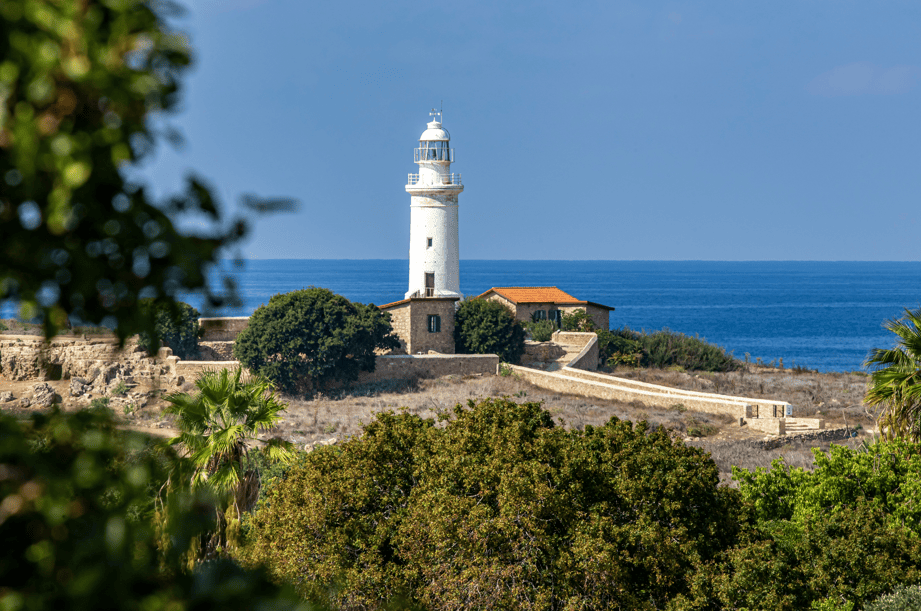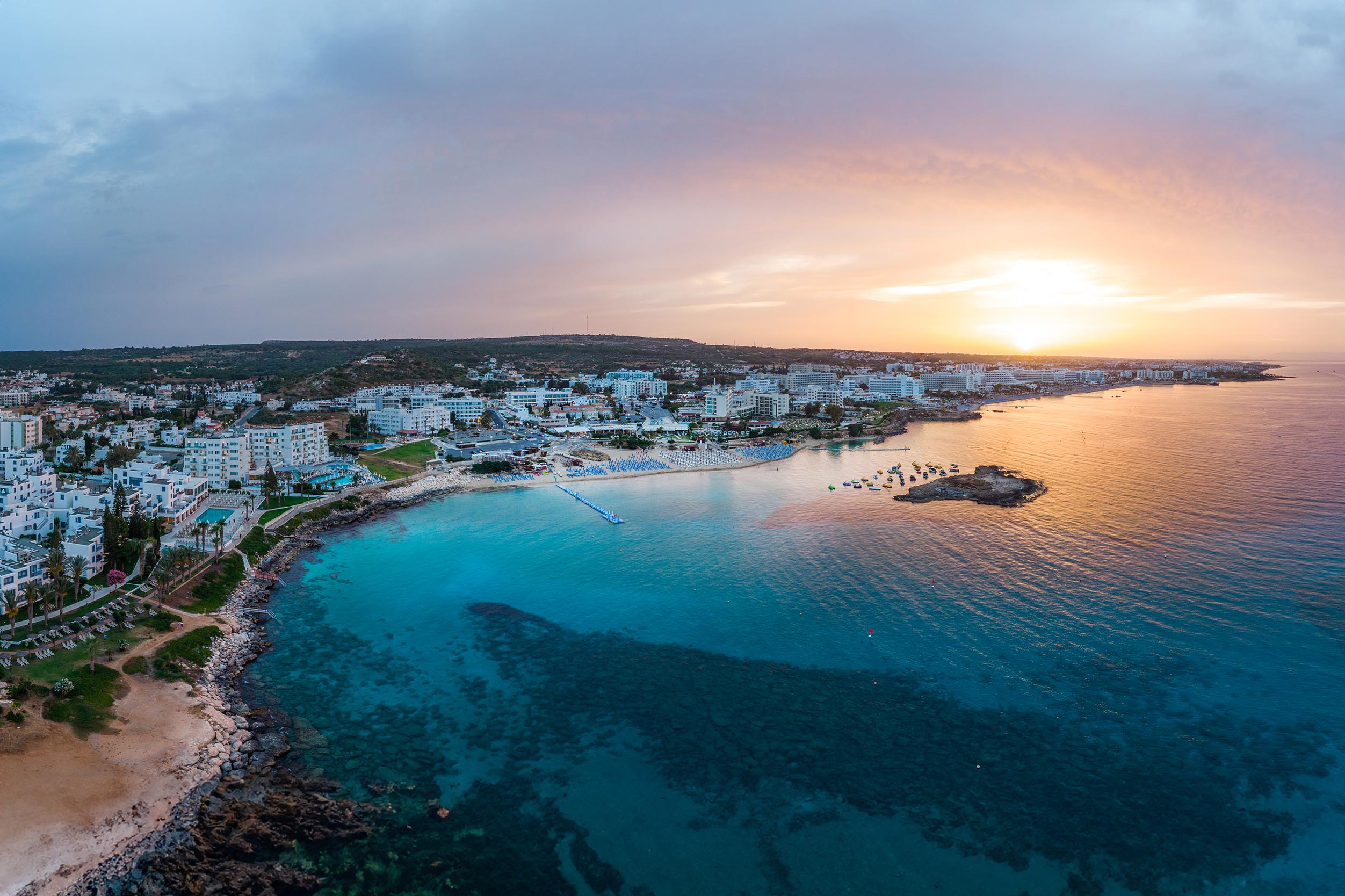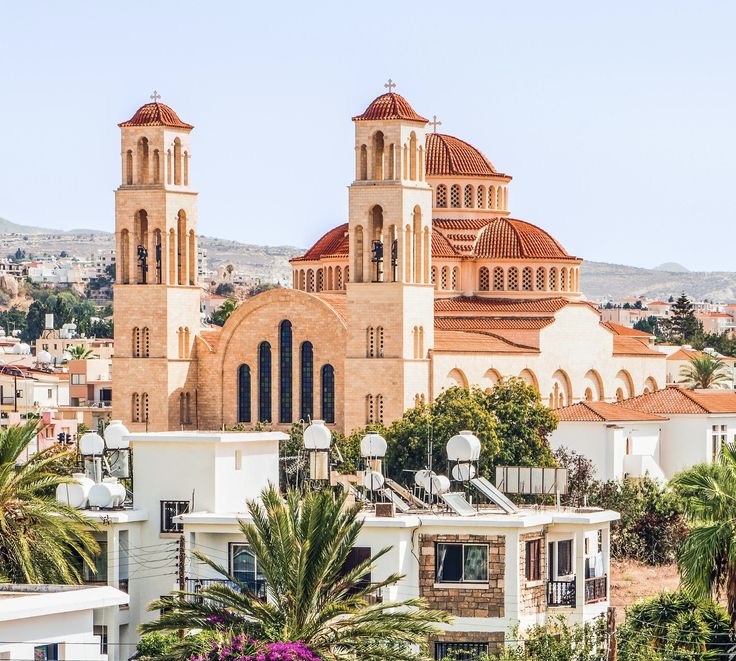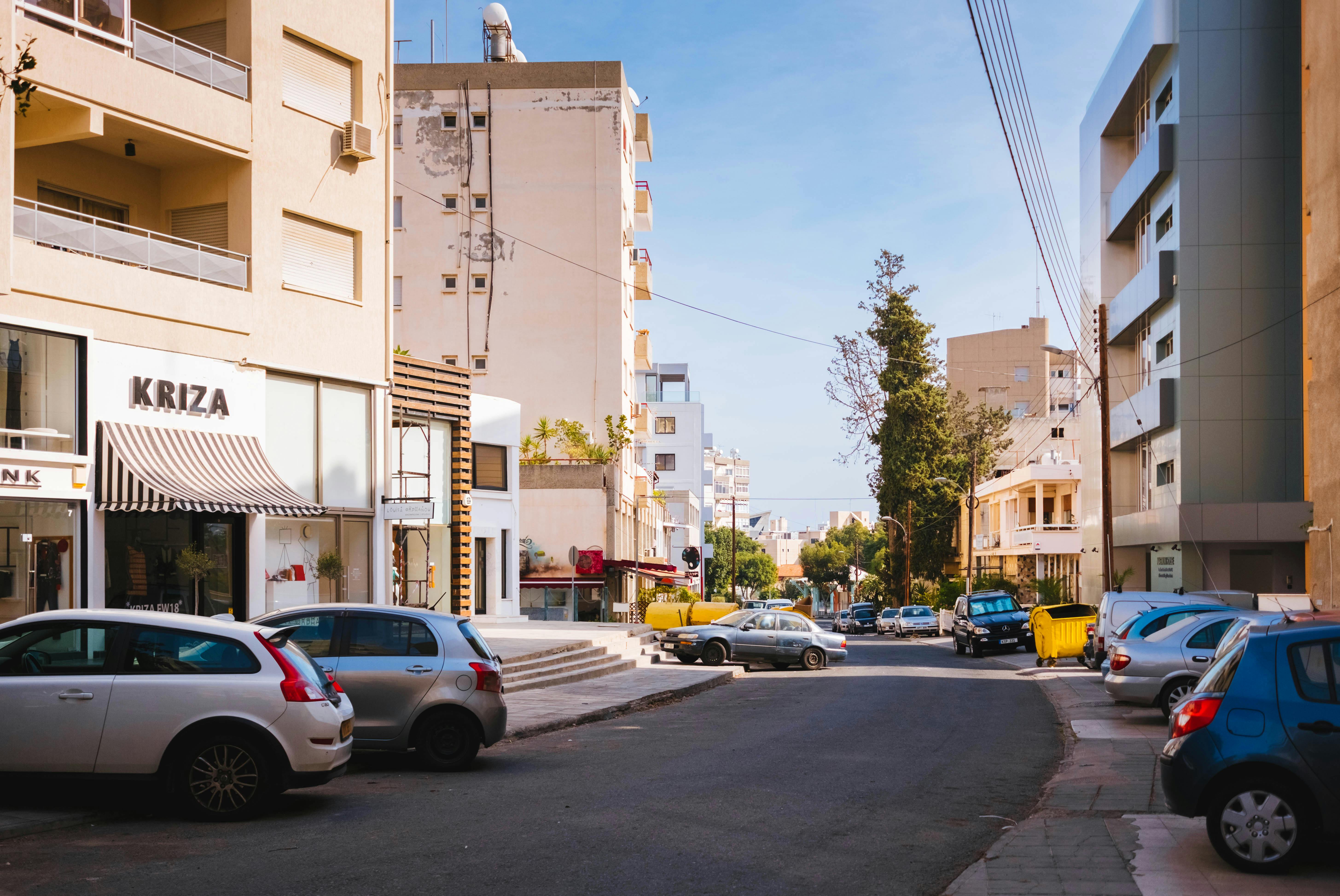With its temperate climate, over 300 days of sunshine annually, stunning landscapes, and azure sea, Cyprus offers a tranquil and relaxed lifestyle amidst beautiful resort scenery.
Let’s discover why life in Cyprus is so appealing and why it’s worth considering as your next relocation destination.
What Makes Cyprus Remarkable?

A distinctive feature of the locals is their unique ability to embrace a slow and leisurely pace of life. The principle of “Siga-siga” (translated as “slowly-slowly”) is central to Cypriot culture.
While the island’s inherent tranquility promotes a relaxed lifestyle, you may need to exercise patience and occasionally follow up when dealing with paperwork.
Language
Turkish and Greek are the official languages of the country. Nevertheless, approximately 73% of Cyprus residents speak English. Therefore, if you’re worried about communicating in the official languages while living in Cyprus, you can be confident that English will be understood perfectly well!
Warm Climate

Cyprus enjoys a warm climate, with early springs and hot summers. Average temperatures range from +21 °C in March to April and +31 °C from June to September, with occasional highs reaching +40 °C. To cope with the heat, many Cypriots take siestas.
The beach season extends from March to October, with seawater temperatures peaking at +28 °C during July and August.
Winters are mild, rarely dropping below +18 °C, with blooming hibiscus and tulips and occasional rains. Snow is only seen on the Troodos mountain slopes, offering opportunities for skiing.
Residency and Citizenship
Cyprus is among the rare countries that provide attractive opportunities for foreigners through real estate investments. By purchasing property worth at least 30,000 euros, you can secure residency in the country. This residency is not only for life but can also be inherited by future generations.
After several years of living in Cyprus, foreign nationals can apply for a Cypriot passport. This passport offers visa-free access to more than 170 countries, including Japan and 27 European Union member states.
Business Opportunities
Foreign citizens have a seven-day window to register a business in Cyprus, whether it’s a new company planning to establish a physical presence on the island or a branch of an existing foreign enterprise. The key requirement is that the company’s turnover must have exceeded 500,000 euros over the past three years.
Cyprus offers some of the lowest corporate tax rates in the EU, with the rate set at just 12.5%.
Quality of Life and Safety
In Cyprus, the Ministry of Health has established an insurance system supported by taxpayers’ contributions. This system provides medical services not only to civil servants and employed individuals but also to the unemployed. Additionally, the island ranks fourth in the list of countries with the best environment for children.
Concerned about safety? You’ll be pleased to know that Cyprus is among the top five countries with the lowest crime rates globally, with around 466 police officers per 10,000 residents.
Education is highly valued in Cyprus, with approximately 70% of the country’s GDP allocated to this sector. The island boasts internationally recognized public and private schools and universities.
Delicious Cuisine
You’ll be amazed by the diverse range of local dishes and their rich flavors. The Cypriot climate ensures a constant supply of fresh seafood, vegetables, and fruits. Additionally, the island produces exceptional wine, olive oil, and a variety of delicious cheeses, including the renowned halloumi.
Rich History
Cyprus boasts a history of approximately 10,000 years, marked by influences from numerous cultures. As a result, the cultural heritage of contemporary Cyprus reflects a blend of Turkish, English, and Greek traditions.
Are There Disadvantages of Living in Cyprus?
Before making the move to Cyprus, it’s important to consider both the benefits and the potential drawbacks. Here are a few minor disadvantages to living on the island.
Cyprus Is Not Part of the Schengen Area
Foreign residents in Cyprus with permanent or temporary residency cannot travel visa-free to Schengen Agreement countries. This privilege is available only with a Cypriot passport or through “golden visas” from Portugal and Greece.
Growing Demand for Rental Housing
The number of immigrants moving to Cyprus increases each year, which not only drives up real estate prices but also leads to a shortage of rental properties. However, there is no need to worry, as this sector is actively developing, with numerous construction projects underway across the island.
Difficulties With the Transportation System
The public transportation infrastructure is still growing, and currently, only a limited number of bus routes are available. To navigate Cyprus comfortably, owning a car is generally recommended.
Susceptibility to Earthquakes
Cyprus is situated in a region with heightened seismic activity, which means minor tremors can occur, particularly in coastal areas like Famagusta, Larnaca, Limassol, and Paphos. However, there’s no need for concern! Earthquakes here rarely exceed a magnitude of 3 on the Richter scale, and they are often only detected by seismographs without being felt by the residents.
Despite these drawbacks, they are far outweighed by the numerous advantages that this beautiful island offers.
Which Cities in Cyprus Are the Best to Live In?

It’s fascinating to consider the size of Cyprus and the diversity of its terrain. Only by relocating to the island will you truly grasp its unique characteristics. The best place to live will depend on your personal preferences.
Cities by the Sea
The most popular coastal cities are Famagusta and Kyrenia. Living near the sea offers the advantage of clean sea air. Additionally, Kyrenia features prestigious schools with English-language instruction.
If you prefer to avoid crowded beaches, consider the suburban areas of Kyrenia. Housing here is more affordable, and the noise levels are lower. Modern cities on the island offer amenities comparable to European standards, including supermarkets, hospitals, private clinics, and dental offices.
Famagusta is a hub of entertainment, with plenty of family-friendly activities. The local schools provide educational programs in Turkish, and there are numerous shops, markets, clinics, and beauty salons to ensure a comfortable living experience.
Cities Away from the Sea
For those seeking a quieter, more relaxed lifestyle away from tourist areas and hustle, Lefke and Morphou are excellent choices.
Lefke is as beautiful as the coastal cities, but has fewer foreigners. Its fertile lands are ideal for enjoying homegrown dates, plums, and citrus fruits year-round if you’re interested in purchasing a plot of land with a house.
Morphou, surrounded by citrus orchards and pine forests, remains untouched by the bustle of urban life, making it perfect for families with children. The city offers parks, entertainment centers, shopping areas, and swimming pools. In addition to standard curricula, schools and kindergartens provide supplementary education.
Summing Up
Cyprus has long been a highly desirable and sought-after location for relocation within Europe. Its varied real estate market, ample business prospects, and pathways to permanent residency make it an appealing choice for those aiming to move to a developed nation.
If you’re thinking about relocating, the professionals at Anisad are here to assist you in finding the ideal housing options tailored to your needs!





